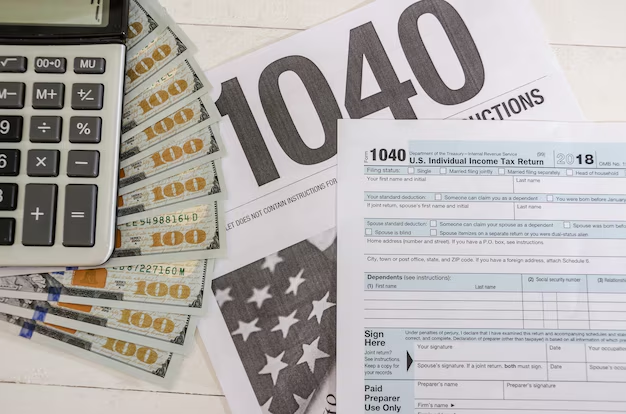Your Guide to Does Utah Have State Income Tax
What You Get:
Free Guide
Free, helpful information about TAX FAQ and related Does Utah Have State Income Tax topics.
Helpful Information
Get clear and easy-to-understand details about Does Utah Have State Income Tax topics and resources.
Personalized Offers
Answer a few optional questions to receive offers or information related to TAX FAQ. The survey is optional and not required to access your free guide.
Understanding Utah's State Income Tax: What You Need to Know
Utah, known for its stunning natural landscapes and vibrant economy, offers a unique mix of opportunities and responsibilities for its residents. A question that frequently arises among both newcomers and long-time Utahns is: Does Utah have a state income tax? Let’s delve into this topic to uncover the details and clear any confusion surrounding Utah’s tax system.
Utah's State Income Tax: The Basics
Utah does indeed impose a state income tax. As a resident of the state, it’s important to understand how this tax is structured, what it means for your finances, and how it compares to other states. By examining the nuances of Utah's tax system, individuals can better navigate their financial planning.
Flat Tax Rate
One of the defining features of Utah’s state income tax is its flat tax rate. Unlike a progressive tax system where rates increase with income, Utah applies a single tax rate to all taxpayers, regardless of their income level. Here are some key points to consider:
- Simplicity: The flat tax rate simplifies the filing process.
- Uniformity: Every taxable dollar is treated equally.
- Planning: Easy to calculate approximate tax liability.
How Utah's Income Tax Is Calculated
Calculating your Utah state income tax involves determining your taxable income and applying the flat tax rate. Here's a simple overview:
- Determine Adjusted Gross Income (AGI): Start by figuring your federal AGI, which serves as a basis.
- Apply Deductions and Credits: You can subtract personal exemptions and apply any eligible state tax credits.
- Flat Tax Application: Multiply the resulting taxable income by the state’s flat tax rate.
Who Needs to File?
Residents and non-residents alike may need to file a Utah state income tax return if they have earned income derived from Utah sources.
- Residents: Taxed on all income, no matter where it’s earned.
- Non-residents: Taxed only on income sourced from Utah activities.
Comparing Utah’s Tax System Nationally
Understanding how Utah fits in the broader U.S. landscape can provide additional context for taxpayers.
Advantages of Utah's Flat Tax
- Predictability: Knowing exactly what percentage of your income will go to state taxes can simplify budgeting and forecasting.
- Ease of Compliance: The straightforward calculation reduces complexity and potential errors in tax filing.
States Without Income Tax
It's worth noting that some states, such as Florida and Texas, do not levy a state income tax at all. However, these states often compensate through higher sales or property taxes, ensuring necessary state revenue.
- Varied Tax Burdens: Each state balances taxes differently, impacting overall cost of living.
- Financial Planning Differences: Moving from a no-income-tax state to Utah, or vice versa, necessitates a shift in personal financial management and expectations.
Practical Insights and Common Questions
Filing Deadlines and Extensions
Residents should be aware of annual deadlines for state tax returns, typically aligning with federal tax deadlines.
- Filing Deadline: Mid-April for most taxpayers, matching the federal tax deadline.
- Extensions: Available, but they don’t extend payment deadlines.
- Late Payment: Can incur penalties and interest, emphasizing timely compliance.
Common Tax Deductions and Credits
Numerous deductions and credits are available to Utah taxpayers, offering potential savings and allowing for tailored tax strategies.
Examples of Available Credits
- Educational Credits: Student-based deductions for tuition or related expenses.
- Energy Efficiency Credits: For environmentally-friendly home improvements.
Preparing for Tax Filing in Utah
Individuals should adopt a proactive approach by organizing records, understanding eligible deductions, and utilizing available resources like tax software or professional help.
- Document Organization: Keep track of all income statements, deductions, and credits.
- Professional Support: Utilize accountants or tax advisors for complex situations, especially with multi-state income concerns.
- Software Assistance: Leverage user-friendly tax software for filing and maximization of savings.
📌 Quick Reference Summary: Utah State Income Tax
Here’s a concise list of key points regarding Utah’s state income tax:
- Flat Tax Rate: Simplifies calculations without varying rates.
- Filing Requirements: Applies to residents and certain non-residents.
- Comparison: Utah stands out with predictable rates amid diverse national tax systems.
- Deadlines and Extensions: Align with federal deadlines; extensions available but not for payments.
- Common Credits: Educational and energy efficiency credits can reduce liability.
Final Thoughts
Understanding Utah's state income tax system is crucial for effective financial planning. While the flat tax rate simplifies the process, individuals must be mindful of available credits, deadlines, and how Utah's tax system compares to other states. By staying informed and organized, Utah taxpayers can efficiently navigate their fiscal responsibilities and make the most of their income.
What You Get:
Free TAX FAQ Guide
Free, helpful information about Does Utah Have State Income Tax and related resources.

Helpful Information
Get clear, easy-to-understand details about Does Utah Have State Income Tax topics.

Optional Personalized Offers
Answer a few optional questions to see offers or information related to TAX FAQ. Participation is not required to get your free guide.


Discover More
- a Sales Tax Is a Type Of
- a Tax Exemption
- Am I Tax Exempt
- Are 401k Contributions Tax Deductible
- Are 529 Contributions Tax Deductible
- Are 529 Plan Contributions Tax Deductible
- Are Association Fees Tax Deductible
- Are Attorney Fees Tax Deductible
- Are Campaign Contributions Tax Deductible
- Are Charitable Donations Tax Deductible
